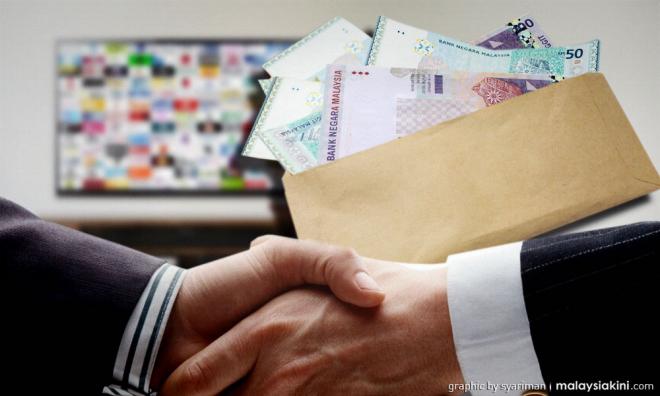
During Mat Sabu’s past ceramah sessions, he would often announce that donations would be collected from the audience for the party’s cause. Some people may have grumbled, which is why he explained: “Kami kutip derma dari kamu semua sebab perjuangan kami sebagai wakil rakyat, bukan wakil towkay (We collect donations from you because our cause represents the people, not the tycoons).”
We’ve been preoccupied with racial issues, but I believe money politics is a greater danger facing us. Will we one day end up like the USA, where the rich pay both government and opposition parties to guarantee policies that favour the elite? Where, in 2016, 45 percent of adult Americans did not vote as most felt politics was meaningless, and had failed to create “change we can believe in” (President Obama’s slogan).
This is why political funding reform is crucial for Malaysia’s future.
“Political parties need funding... The cost of being in politics is very high now,” said Prime Minister Dr Mahathir Mohamad in January, after launching the National Anti-Corruption Plan. “So, the government is now looking at how funding should not act as a bribe to parties or the government.”
Ten months later, we're still waiting for this reform, while we’ve been busy (or deliberately distracted?) with racial issues like khat, Zakir Naik and the “Malay Dignity” congress. Meanwhile, are big money interests quietly “influencing” government policy?
In America, big corporations give massive “donations” for politicians’ election campaigns, in exchange for favourable laws. It’s like a legalised form of corruption. One result is that insulin for diabetics in the US costs 10 times more than what Canadians pay. Senator Bernie Sanders (below), who is running for president, said this was caused by US drug companies, which have spent billions of dollars to lobby politicians.
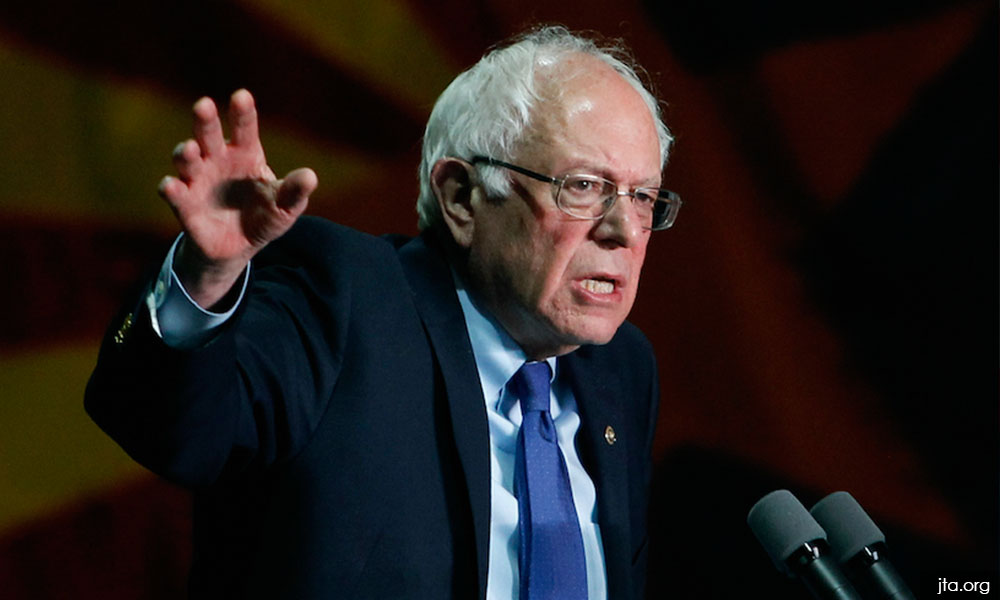
“They buy and sell politicians, Republicans and Democrats,” he said, “to make sure that they can continue to (be allowed to) charge the American people any price they want.”
How about in Malaysia? In early October, PKR co-founder Syed Husin Ali alleged that many companies and projects have been handed to Mahathir’s cronies, such as Daim Zainuddin and tycoon Syed Mokhtar Albukhary.
Control of nine major agencies, including the crucial Khazanah Nasional and Permodalan Nasional Bhd (PNB), has been shifted to Mahathir, other Bersatu ministers and their ally Azmin Ali, noted the think tank Ideas. Economist Terence Gomez said this means Mahathir is still the "de-facto" Finance Minister - thus repeating the situation that enabled Najib Razak to perform his 1MDB financial gymnastics.
“Bersatu is doing exactly what Umno did. They’re using the same system, they’re playing the same patronage games,” Gomez told FMT.
There are also dubious proposals to acquire the PLUS toll highways (now owned by us, via Khazanah and EPF) which could mean that certain people benefit while taxpayers get shortchanged. And will crony suppliers benefit from the controversial Turd National Car, as the company which made faulty power windows for our “beloved” Proton did for decades?
Pakatan’s money politics?
Wong Chen (below), the PKR MP for Subang (formerly Kelana Jaya) wrote in 2017: “Many politicians from both sides of the divide (including Pakatan) are engaged in influence peddling. They attempt to justify this ‘I scratch your back, you scratch mine’ culture by claiming they are raising money for their political parties’ struggles, ironically for a ‘better Malaysia’.
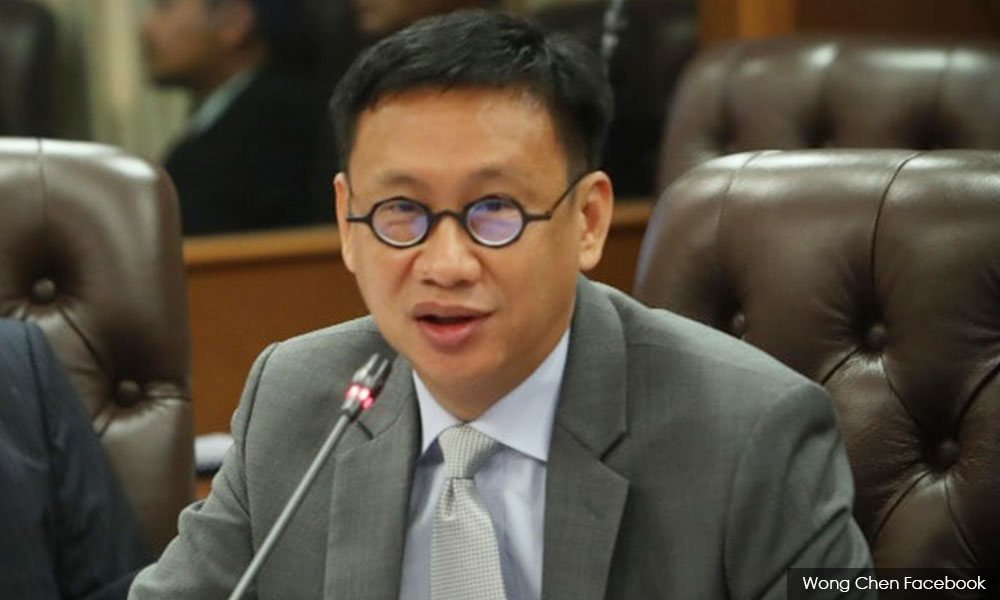
“The argument goes that it is permissible to engage in corrupt practices to raise money to win elections, and only then finally, can we bring about political change.”
Bersatu vice-president Abdul Rashid Abdul Rahman was more blunt, declaring it was “stupid” not to exploit power by getting the government to channel resources and projects to party division chiefs. He said this at the party AGM in December 2018 - and got a standing ovation.
On Aug 29, the share prices of fibre optic cable maker Opcom Holdings Berhad jumped up 40 percent after the Pakatan government approved the RM21.6 billion national plan to boost internet speeds. Opcom is one company that makes those cables, but what raised eyebrows was that it was linked to Mahathir’s sons, Mukhriz and Mokhzani.
Is this why the Institutional Reforms Committee (IRC) report has still not been released? And worse, that the Council of Eminent Persons' (CEP) report has been declared a “national secret” by law?
How close are the links between big corporate players with politicians? Have “donations” from tycoons to political parties’ “sports clubs”, “welfare funds” or nominees’ offshore accounts influenced decisions?
Some people may feel, “Aiya, all these things, I don’t care la… let the big boys play their games.” But we should remember that money politics (which is legalised corruption) ultimately means that somebody is gaining at the public’s expense. Take soaring house prices for instance.
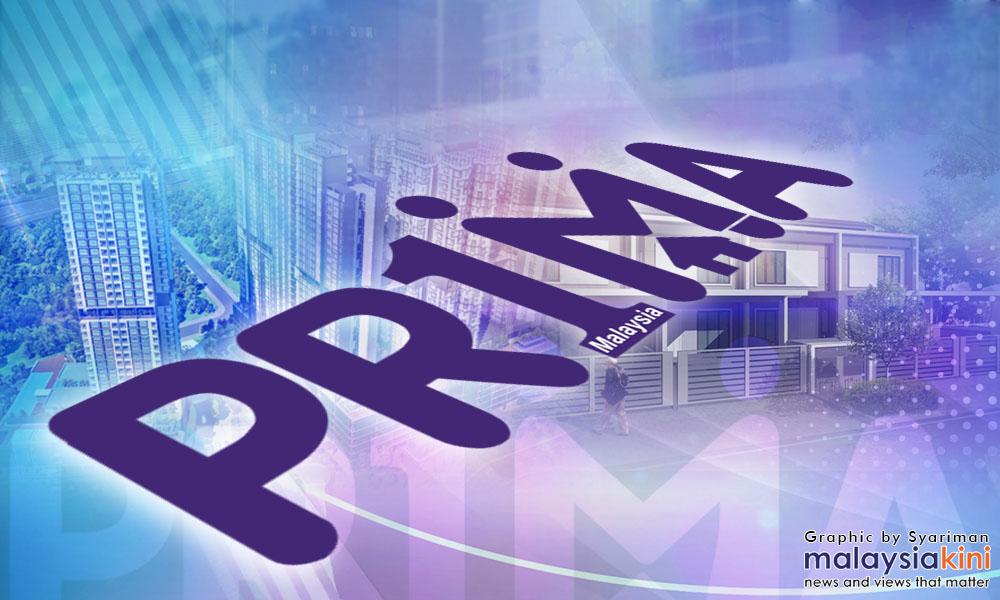
In 2011, Najib Razak launched the national housing company called PR1MA with the pledge to build one million affordable homes by 2020. But by 2018, only 16,682 units had been completed. Why did PR1MA fail? Was it because building so many lower-priced homes would have cut the profits of property developers, and hence their “donations” to politicians?
Pakatan has also made a big promise to build one million affordable homes in ten years. Will this succeed? Actually, as there is currently a property glut in Malaysia, the government need not even do much but simply allow property prices to fall further.
Yet Housing and Local Government Minister Zuraida Kamaruddin proposed marketing RM100 billion worth of unsold high-end properties to buyers from China to prop up the market. The National House Buyers Association (HBA) slammed the minister, as it will only encourage developers to build more high-end units and neglect affordable ones.
The government claims it “lacks money” to fulfil several Pakatan manifesto promises such as deferring PTPTN loan repayments and lowering the cost of living. Similarly, in the USA after the 2008 financial crisis, there was “not enough money” to help those Americans struggling with student loans or being kicked out of their homes in foreclosures. But up to US$4.5 trillion was used to bail out Wall Street fat cat bankers.
Despite his lofty “I feel your pain” speeches about the poor, when it came to real action, Obama preferred to help Wall Street, which was one of his main campaign donors. Most of those bankers, whose fraudulent actions crashed the world economy, escaped persecution, so much so they were called “Untouchables” who were above the law.
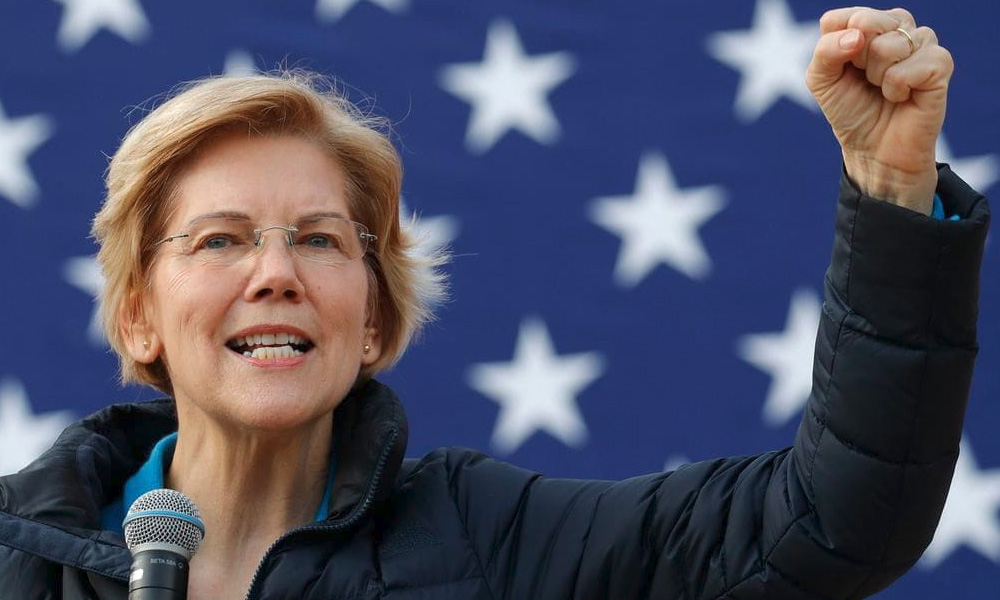
If the Pakatan government really “lacks money” to fulfil its manifesto promises, why not impose more taxes on the super rich 0.1 percent of Malaysians? For example, another US Presidential candidate, Senator Elizabeth Warren (above) is asking the 0.1 percent of Americans who have fortunes above US$50 million to pay a modest 2 percent wealth tax that will bring in nearly US$3 trillion to relieve student loans, provide free childcare and reduce healthcare costs.
Predictably, the billionaires have slammed Warren’s proposal as “impractical” and “unrealistic”. How about in Malaysia? Can something like this be done? Or are the mega rich politically “untouchable”?
How to reform political funding
Harapan’s Political Funding Bill was supposed to have been tabled in Parliament in October, but has been postponed to 2020, as it seems the Prime Minister’s Department is still “waiting for feedback and suggestions” from various ministries.
The bill is said to require political parties to disclose their sources of funding. But what if the super rich disguise their donations through mysterious channels?
A better solution is for public funding of political parties. For example, US presidential candidate Andrew Yang has proposed that every American voter should be allowed to allocate US$100 of government “democracy dollars” to the party of their choice. This will cause a flood of citizen-controlled money that will “wash out” corporate lobbyists’ donations (because it will be eight times larger). The idea is that politicians will then (finally!) do what voters want - because that is where their money will come from too.
Public funding of political parties has been done in mature democracies, including Australia, Canada, Japan and many European Union countries. For example, in Germany, €0.85 (RM3.90) is given to a party for each vote it receives. Taxpayers pay up to €190 million to support political parties, which is about 0.05 percent of the country’s federal budget.
For Malaysia, 0.05 percent of our 2020 budget will amount to about RM150 million. That may look like a lot, but if it can prevent mega scandals like 1MDB (RM42 billion lost), or the RM21 billion “overpaid” for the East Coast Rail Link (ECRL), it’s a fantastic bargain.
If that is too expensive, Subang MP Wong Chen has proposed that taxpayers fund political parties with RM5 per year for every vote received in the last general election (provided they win at least one seat). This will only cost only RM54 million per year to implement.
He also proposes that parties set up crowdfunding mechanisms so that they will receive many small donations (no more than RM100 a year). This will democratise political funding.
In the US Democratic Party primary contest now, the sincerity of presidential candidates is being gauged based on who funds them. This is because “money talks” (the loudest), and politicians develop amazingly “better hearing” towards those who are funding them.
Are they, like former Vice-President Joe Biden, getting their money mostly from a few rich donors? Or, are they like Bernie Sanders, who refuses to take big corporate money? His grassroots-funded campaign received 1.4 million donations in the third quarter of 2019, at an average of US$18 each, mostly from teachers and workers.
Whichever system is chosen to reform Malaysia’s political funding system must be able to defeat (or at least reduce) the influence of big money on politics. This is one of the acid tests for Pakatan Harapan. If they fail in this, then government decisions may be auctioned off to the highest bidder or “donor”.
If that happens, then our government will mutate from a democracy “of the people, by the people and for the people”, into a plutocracy “of the money, by the money and for the money”.
Then, to cite Mat Sabu, our politicians will have to change their job titles from “wakil rakyat” to “wakil towkay”.
ANDREW SIA is a veteran journalist and editor who prefers teh tarik khau over tepid English tea. You can add milk, sugar and halia to his drink at tehtarik@gmail.com. - Mkini



No comments:
Post a Comment
Note: Only a member of this blog may post a comment.